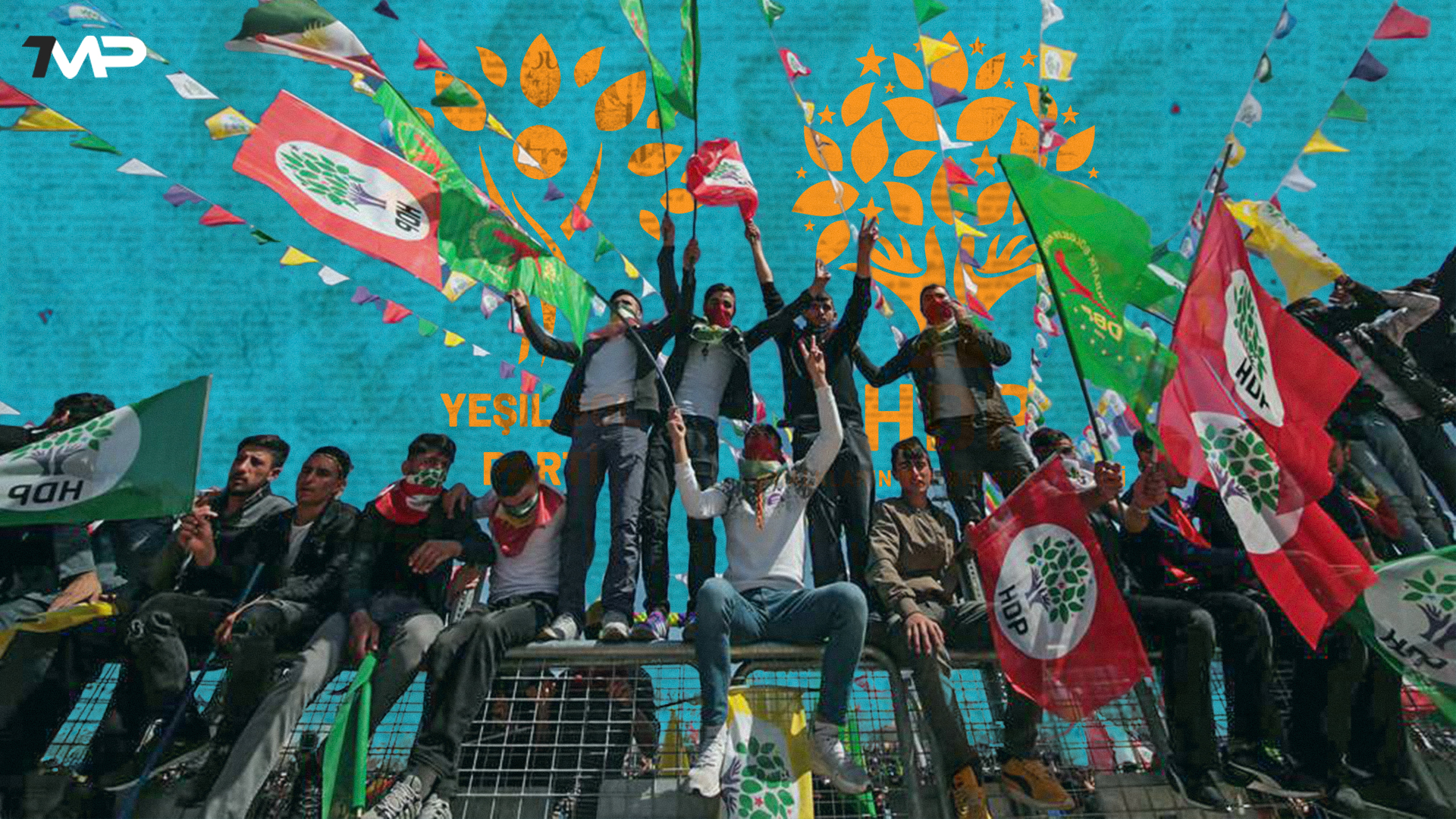
The People’s Democratic Party (HDP) announced that it will participate in the parliamentary elections to be held in Türkiye under the emblem of the Green Left Party (YSP). The decision was taken due to the odds of the closure of HDP after the Constitutional Court rejected the request for an adjournment of the oral defense. In the event that HDP is officially closed, it will be the 8th party in the political history of Türkiye to defend the rights of the Kurds and to be banned.
After the establishment of the People’s Labour Party (HEP) in 1990 by Kurdish politicians, many parties were closed by court decisions until 2009. Additionally, two parties, the Democratic People’s Party (DEHAP) and Özgür Parti (Free Party), had to dissolve themselves. 12 years after the Democratic Society Party (DTP), the last party to be banned, the HDP is at risk of being closed.
The People’s Labor Party (HEP), which was formed after gathering around the Kurdish question, was founded on June 7, 1990. In the general elections held on October 20, 1991, 18 HEP deputies were elected. However, the political journey of the party did not last long. At the oath-taking ceremony in the parliament on 6 November 1991, Deputy Hatip Dicle’s statement that he had to read the text under the pressure of the constitution, and MP Leyla Zana’s speech in Kurdish with the Kurdish colors yellow-red-green on her collar and head, led to an investigation in a short time. The party was banned on 14 September 1993.
In 1992, the Freedom and Democracy Party (ÖZDEP) was founded when the prospect of HEP’s closure arose. However, ÖZDEP’s place in the political arena was also temporary. The Constitutional Court closed ÖZDEP on November 23, 1993. Kurdish politics faced the closing of the party for the second time. As they were aware of the risks, the Democracy Party (DEP) was formed during the lawsuit process. However, a closure case was also filed against the DEP, and in this process, the immunity of 13 DEP deputies was lifted and some of them were arrested. Türkiye was convicted by the European Court of Human Rights for the arrest of several deputies of the party.
Since each established party was facing closure, Kurdish representatives had to form many new parties; The People’s Democracy Party (HADEP) was founded in 1994, the Democratic People’s Party (DEHAP) in 1997, the Özgür Party (Free Party) in 2003 and the Democratic Society Party (DTP) in 2005. The DTP became the last party in Kurdish politics to be banned by the Constitutional Court in 2009. However, in the same year, the Peace and Democracy Party (BDP) was founded.
Lastly, the Peoples’ Democratic Party (HDP) announced its establishment in 2012. Kurdish politicians decided to continue the general politics with the HDP and the local politics with the DBP. Hence, BDP changed its name to the Democratic Regions Party (DBP) in 2014. The HDP, on the other hand, took its place in the parliament with 67 deputies by getting 11.7 percent of the vote in the 2018 elections. Nowadays, the lawsuit filed for the closure of HDP in 2021 is considered as a continuation of all other parties that were closed. Taking the legal restrictions in consideration, the HDP decided to participate in the elections under the umbrella of the YSP.
